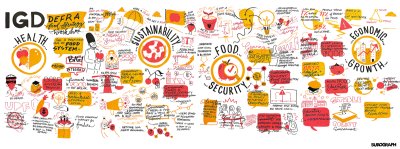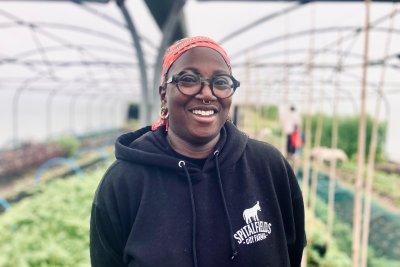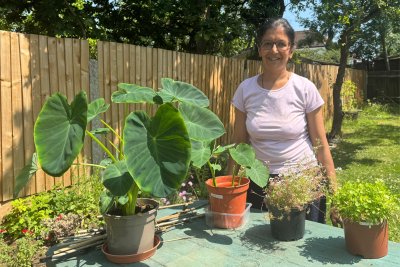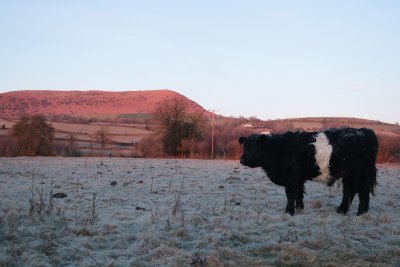 Belted Galloway at Three Pools Farm. Credit: Huw Evans
Belted Galloway at Three Pools Farm. Credit: Huw Evans
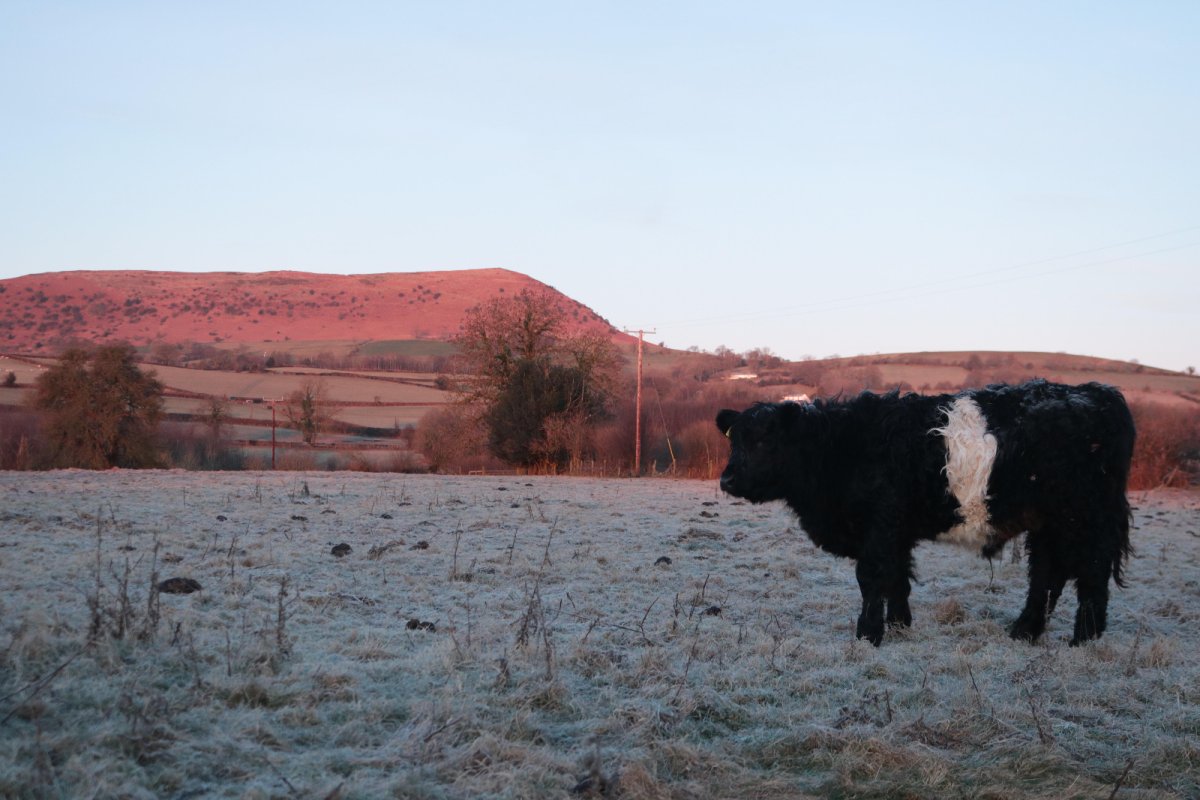
Food Security must be based on agroecology
To realise a future where everyone has access to nutritious and affordable food, we must redefine 'food security' to align with agroecological principles.
Agroecology, the integration of ecological principles into farming practices, holds the key to not only feeding our population but also farming in harmony with our planet. But what does this mean in a nation where the definitions of what constitutes food security vary, and where not all food is homegrown? How do we get the balance right? We dive into this complex issue through the lens of recent findings and propose a sustainable path forward.
The current state of UK Food Security
Our national food security comprises numerous factors, including global food availability, domestic and international food supply, supply chain resilience, household food insecurity and food safety and consumer confidence.
The UK currently produces about 60% of its domestic food consumption by economic value, part of which is exported. We are heavily reliant on imports, with 85% of our fruit and 43% of our vegetables currently imported. The Government estimates that just under half of the food on our plates is produced in the UK.
The Food Foundation's Broken Plate report paints a grim picture for household food security: the poorest 20% in the UK would need to spend half of their disposable income to afford a government-recommended healthy diet. In June 2023, 17% of households faced food insecurity, with often the only option being cheap, ultra-processed foods high in fats, salts, and sugar. Unhealthy food is flooding our shops and propelling obesity rates toward a projected 40% by 2035, with a staggering financial burden on the NHS projected to surpass £15 billion. It's clear: our current food system is failing to provide accessible, affordable and nutritious food for all.
The misguided metric: Quantity over quality
The myopic focus on yield has to change. With food security, the narrative has long been dominated by a singular approach: maximise the use of available land for agricultural production and maximise the yield grown on that land. Since 1950, government supported intensification, in the name of 'productivity' has led to the destruction of 118,000 miles of hedgerows. This perspective, while well-intentioned, overlooks a crucial aspect of what it truly means to secure healthy food for our growing population. It's time to shift the conversation towards a more holistic understanding of food security, one that is deeply rooted in agroecological principles.
The least productive 10% of agricultural land produces just 1% of England's calories, while 40% of the UK's arable land is dedicated to animal feed, much of which supports an industrial livestock system that leeches pollutants into our rivers and offshores profits from our food system to distant conglomerates.
The fact is, we use huge amounts of land for the cultivation of commodities we actually need less of, like sugar beet and maize, which, while profitable, are often not used to nourish our communities. Instead, these crops find their way into biofuels, intensive livestock units, and confectionary products, contributing little to our nation's nutritional security or health.
Nature, Climate, & Food Security
A food security definition that doesn't include the potential damage caused to the environment and climate by certain types of agriculture is completely inadequate.
Food security and a healthy natural world are indivisible. Defra’s own Food Security Report identifies climate change and biodiversity loss as the greatest threats to UK food security. The UK is already one of the most nature depleted countries on earth, and without healthy soils and thriving pollinators, farmers cannot produce the food we need and become increasingly reliant on expensive fertilisers and inputs. Farming in harmony with nature and climate underpins, rather than undermines our food security.
Global shocks have been driving agricultural input prices through the roof, and with an increasingly unstable geo-political landscape, we can no longer rely on cheap imports of fertilisers, energy, and pesticides to over-inflate our yields beyond what is environmentally and ecologically sustainable. And nor should we, the use of fertilisers and manure continues to add over 1 million tons more nitrogen and phosphorus than soils can absorb. Agroecological farming is less reliant on inputs, more resilient to natural and market shocks, and better for nature and climate.
Agroecological Food Security
Agroecology offers genuine food security by ensuring ample, sustainable, and nutritious food for a growing population, within the limits of our ecosystem, supporting prosperity for our farmers.
Research by the FFCC shows that through a wholesale transition to agroecology, we can feed a growing population a healthy diet, reduce emissions by 55-70%, and spare 1.8million hectares for nature. More detail can be found on that here.
Roadmap to Agroecological Farming
- A fair food supply chain: The UK’s food supply chain has become inefficient, unfair, and inflexible, making it vulnerable to shocks. Without more fairness in the food supply chain, good farming will always be on the brink of financial viability. Farmers cannot invest in agroecology if they are denied stability and surety, and are not making a reasonable profit. For this we need stronger regulation of the food supply chain, as well as more local, farmer-focussed routes to market. Ways to do this can be found here.
- Enchanced Enviromental Land Management Schemes (ELMs): Despite challenges with the implementation of ELMs, these schemes are pivotal for enhancing nature, food supply, and rural life. Meeting the Government's environmental goals and unlocking ELMs' full potential demands an annual investment of £4.4 billion. This funding is a small price to pay when balanced against the substantial costs of environmental degradation, flooding, and food-related health issues which derive from our broken food and farming system. A holistic approach, integrating organic, pasture-fed, and agroforestry practices, promises a greater cumulative benefit and should be rewarded accordingly within ELMs. Significant funding is also essential for the 3000-4000 higher-tier agreements needed each year to support the farmers most dedicated to environmental stewardship. The current provisions for hill farmers fall short and require substantial improvement to reflect their role in safeguarding nature and climate.
- Horticulture Strategy: If the government are serious about food security, they should revive the horticulture strategy, which they ditched last year. We're heavily reliant on imports, with 85% of our fruit and 43% of our vegetables currently imported. Simply offshoring our emissions, biodiversity loss, and water usage to other countries represents a shunning of our own responsibility to produce fruit and vegetables sustainably.
- Land Use Framework: We need a comprehensive land-use framework from DEFRA to balance the needs for nature, climate and food production. This is a substantial, long-term challenge that can't be left to the market. Any land-use framework must be backed up by ambitious and well-funded Environmental Land Management schemes in order to give farmers the long term stability they need to transition to more nature friendly ways of farming.
- Protective Trade Policy: The government must not undercut farmers’ environmental commitments. We must not undermine British farmers’ ambition by allowing food to be imported that has been produced to lower environmental standards and has higher emissions than food produced domestically.
Addressing Farmer Frustration - The Need for a Just Transition to Agroecology
Recent DEFRA analysis showed that while most farmers are eager to reduce their emissions, they lack a clear pathway on how to achieve this, highlighting the necessity for definitive and research-backed guidance.
This has left farmers feeling abandoned and unsupported. Recent farmer protests in Europe have brought this issue to the forefront, with farmers' genuine concerns and uncertainty about the future of their businesses being misdirected against environmental policies.
But this distracts from underlying issues: the dominance of the major retailers and agri-food conglomerates that extract so much from our food and farming system, leaving little profit for farmers and food producers.
The case of the Red Tractor 'green module' controversy, in which farmers were asked to invest in environmental measures with no added value to their produce exemplifies the imbalance: farmers are asked to do more with less, without seeing the benefits. We argue that those who invest in nature friendly practices should reap the rewards, not supermarkets.
It's imperative that we provide clear guidance and fair compensation to farmers who are eager to embrace agroecological practices. By doing so, we can make the rural economy more diverse and vibrant, as evidenced by the success of FarmED's project, showcasing how agroecology can sustain thriving rural communities.
Securing Our Future: An Agroecological Approach to Food Security
We stand at a crossroads where we must redefine food security to encompass the health of people, the integrity of our nature, and the stability of our climate. We encourage the government and all stakeholders to consider the full scope of food security and commit to a wholesale agroecological transition.
Sustain: Sustain The alliance for better food and farming advocates food and agriculture policies and practices that enhance the health and welfare of people and animals, improve the working and living environment, enrich society and culture and promote equity.
Sustain
The Green House
244-254 Cambridge Heath Road
London E2 9DA
020 3559 6777
sustain@sustainweb.org
Sustain advocates food and agriculture policies and practices that enhance the health and welfare of people and animals, improve the working and living environment, promote equity and enrich society and culture.
© Sustain 2025
Registered charity (no. 1018643)
Data privacy & cookies
Icons by Icons8
